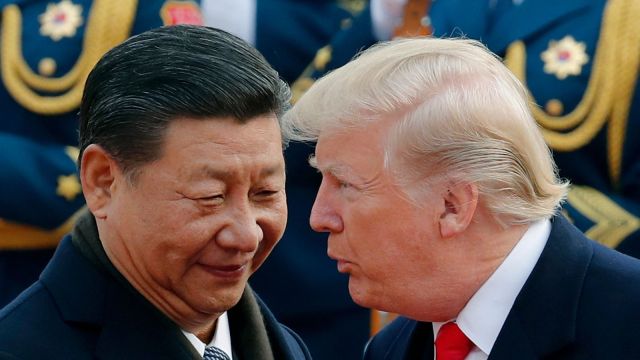US-China tensions could undermine AI safety, former Chinese diplomat warns
These concerns come weeks after DeepSeek's success has led to a seismic industry shift and challenged US dominance.
 China will now face 245 percent tariffs on US imports, said the White House. (AP)
China will now face 245 percent tariffs on US imports, said the White House. (AP)A former Chinese government official has expressed concerns that AI safety and risk mitigation could take a backseat amid the current hostilities between the US and China.
“At a time when the science is going in an upward trajectory, the relationship is falling in the wrong direction and it is affecting unity and collaboration to manage risks,” Fu Ying, China’s former vice minister of foreign affairs, said at a panel discussion held on the sidelines of the two-day Paris AI Action Summit, which kicked off on Monday, February 10.
“When the pace [of development] is rapid, risky stuff occurs,” she added. Fu Ying has previously served as China’s ambassador to the UK and is now an academic at Tsinghua University in Beijing, according to a report by BBC.
Her concerns come just weeks after Chinese AI startup DeepSeek triggered a seismic industry shift and challenged US dominance with its high-performing, low-cost AI model called DeepSeek-R1.
“The Chinese move faster [than the West] but it’s full of problems,” Fu Ying said. She further advocated for taking an open-source approach to developing AI models as it is the most effective way to make sure that the technology does not cause harm.
Open source offers humans “better opportunities to detect and solve problems”, she said, adding that “the lack of transparency among the giants makes people nervous”.
Professor Yoshua Bengio, dubbed as the godfather of modern AI, was also part of Monday’s panel discussion.
Disagreeing with Fu Ying, Bengio said that open-source AI models leave them wide open for misuse by criminals. However, he also said that it was easier to spot safety issues in open-source tools as opposed to AI tools with a closed architecture such as OpenAI’s ChatGPT.
As part of the ongoing Paris AI Action Summit, world leaders, tech executives, and academics from over 80 countries are coming together to examine AI’s impact on society, governance, and the environment.
AI regulation will also be one of the key focus areas of the Summit, which is being co-chaired by Prime Minister Narendra Modi along with his French counterpart, President Emmanuel Macron. OpenAI CEO Sam Altman, Google CEO Sundar Pichai, and Microsoft president Brad Smith are some of the other big names from the tech industry that are attending the conference.







